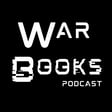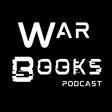
Iraq War – Toxic Exposure & the Toll on Veterans – Joshua Howe & Alexander Lemons
Ep 055 – Nonfiction. Environmental Historian Joshua Howe & Marine Corps veteran Alexander Lemons discuss their new book, “Warbody: A Marine Sniper and the Hidden Violence of Modern Warfare.”
‘A friendship between an environmental historian and a chronically ill US Marine yields a powerful exploration into the toxic effects of war on the human body.
Alexander Lemons is a Marine Corps scout sniper who, after serving multiple tours during the Iraq War, returned home seriously and mysteriously ill. Joshua Howe is an environmental historian who met Lemons as a student in one of his classes. Together they have crafted a vital book that challenges us to think beyond warfare’s acute violence of bullets and bombs to the “slow violence” of toxic exposure and lasting trauma.
In alternating chapters, Lemons vividly describes his time in Fallujah and elsewhere during the worst of the Iraq War, his descent into a decade-long battle with mysterious and severe sickness, and his return to health; Howe explains, with clarity and scientific insight, the many toxicities to which Lemons was exposed and their potential consequences. Together they cover the whirlwind of toxic exposures military personnel face from the things they touch and breathe in all the time, including lead from bullets, jet fuel, fire retardants, pesticides, mercury, dust, and the cocktail of toxicants emitted by the open-air “burn pits” used in military settings to burn waste products like paint, human waste, metal cans, oil, and plastics. They also consider PTSD and traumatic brain injury, which are endemic among the military and cause and exacerbate all kinds of physical and mental health problems. Finally, they explore how both mainstream and alternative medicine struggle to understand, accommodate, and address the vast array of health problems among military veterans.
Warbody challenges us to rethink the violence we associate with war and the way we help veterans recover. It is a powerful book with an urgent message for the nearly twenty million Americans who are active military or veterans, as well as for their families, their loved ones, and all of us who depend on their service.’
Subscribe to the War Books podcast here:
YouTube: https://www.youtube.com/@warbookspodcast
Apple: https://apple.co/3FP4ULb
Spotify: https://spoti.fi/3kP9scZ
Follow the show here:
Twitter: https://twitter.com/warbookspodcast
Facebook: https://www.facebook.com/warbookspodcast
Instagram: https://www.instagram.com/warbookspodcast/

